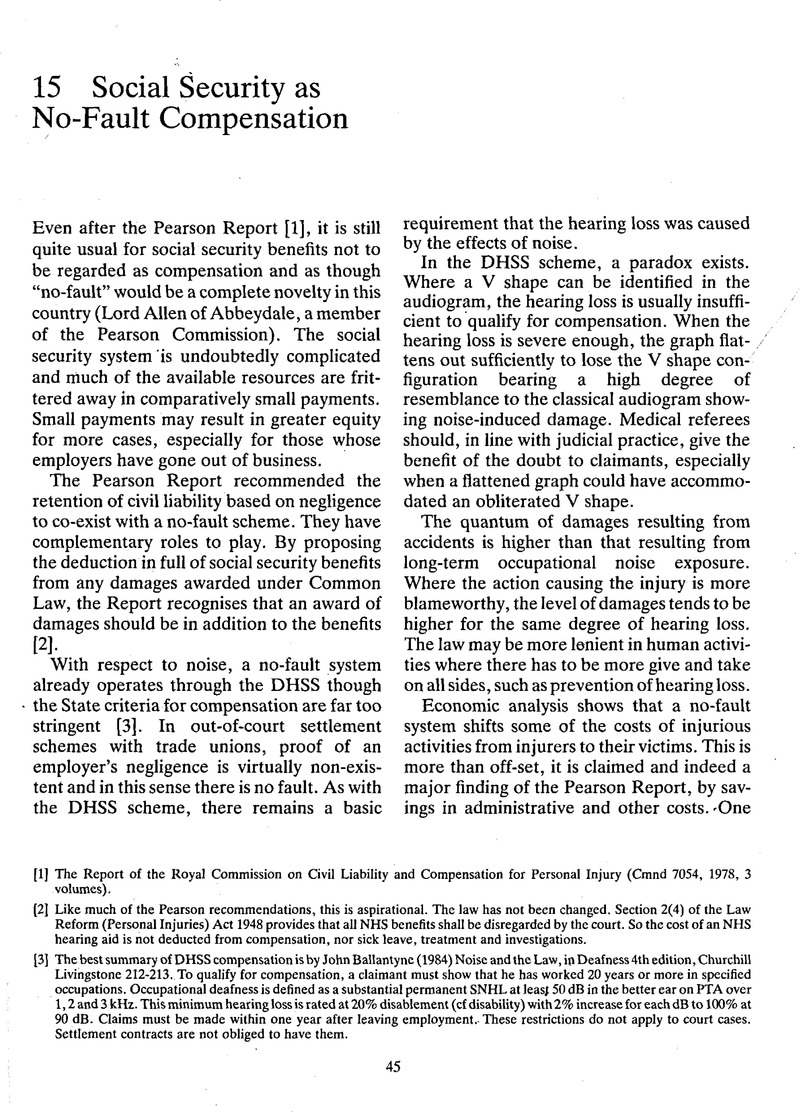No CrossRef data available.
Article contents
15 Social Security as No-Fault Compensation
Published online by Cambridge University Press: 09 November 2023
Abstract

- Type
- Other
- Information
- The Journal of Laryngology & Otology , Volume 100 , Issue S11: Forensic Audiology , 1986 , pp. 45 - 46
- Copyright
- Copyright © JLO (1984) Limited 1986
References
[1] The Report of the Royal Commission on Civil Liability and Compensation for Personal Injury (Cmnd 7054, 1978, 3 volumes).
[2] Like much of the Pearson recommendations, this is aspirational. The law has not been changed. Section 2(4) of the Law Reform (Personal Injuries) Act 1948 provides that all NHS benefits shall be disregarded by the court. So the cost of an NHS hearing aid is not deducted from compensation, nor sick leave, treatment and investigations.
[3] The best summary of DHSS compensation is by John Ballantyne (1984) Noise and the Law, in Deafness 4th edition, Churchill Livingstone 212-213. To qualify for compensation, a claimant must show that he has worked 20 years or more in specified occupations. Occupational deafness is defined as a substantial permanent SNHL at least 50 dB in the better ear on PTA over 1, 2 and 3 kHz. This minimum hearing loss is rated at 20% disablement (cf disability) with 2% increase for each dB to 100% at 90 dB. Claims must be made within one year after leaving employment. These restrictions do not apply to court cases. Settlement contracts are not obliged to have them.
[4] Elisabeth Landes (April 1982) Insurance, Liability, and Accidents: A theoretical and empirical investigation of the effect of no-fault accidents, Journal of Law and Economics, University of Chicago. Massachusetts 1971, Florida 1972, Connecticut 1973, New Jersey 1973, Hawaii 1973, Michigan 1973, Utah 1974, Kansas 1974, New York 1974,Colorado 1974, Nevada 1974, Pennsylvania 1974, Minnesota 1975, Kentucky 1975, Georgia 1975, North Dakota 1976.


